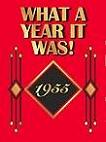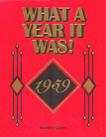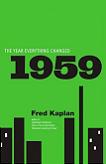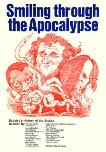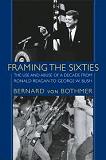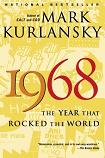
Civil Rights
& The Viet Nam War
War Film Festival - VietNam War Movies
- 1963 Nov 22: Vice President Lyndon Baines Johnson became U.S. President upon the death of John F. Kennedy in Dallas, Texas.
- 1964 Jan 8: President Lyndon Baines Johnson declared a 'War On Poverty' in his State of The Union address.
- 1964 Jan 11: U.S. Surgeon General Luther Terry issued the first "Smoking and Health" government report stating that "cigarette smoking contributes substantially to mortality from certain specific diseases and to the overall death rate".
- 1964 Jan 12: Birthday of Jeff Bezos, future gazillionaire, in Albuquerque, New Mexico, USA.
- 1964 Jan 23: The 24th Amendment to the U.S. Constitution, which eliminated poll taxes in federal elections, was ratified.
- 1964 Jan 25: The Echo 2 balloon communications satellite was successfully launched into orbit.
- 1964 March 13: Bar manager Catherine 'Kitty' Genovese was stabbed to death after work (around 2:30 am) near her home in Queens, New York; the case became major news because 38 neighbors ignored her screams for help.
- 1964 March 14: A jury in Dallas, Texas convicted nightclub operator Jack Ruby of murdering Lee Harvey Oswald, and sentenced him to death; both the conviction and sentence were later over-turned on appeal.
- 1964 March 20: U.S. debut of "The Pink Panther" comedy film, starring David Niven and Peter Sellers; the hit film has been followed by ten sequels and 160+ animated cartoons.
- 1964 March 27: A record 9.2 earthquake hit Alaska, near Anchorage, followed by several tsunamis & aftershocks; 131 people died in Alaska, with tsunami damage reaching Hawaii and Japan.
- 1964 April 7: I.B.M. introduced the innovative System/360 mainframe computers, the first line designed to give customers 'upward compatibility', the option to upgrade later to more powerful (and expensive) configurations.
- 1964 April 13: Sidney Poitier became the first Afro-American to win an Oscar award for a leading role from the Academy of Motion Picture Arts & Sciences (he won for his performance in "Lilies of The Field").
- 1964 April 17: Ford Motor Company unveiled its new Mustang model at the New York World's Fair.
- 1964 April 22: President Lyndon B. Johnson officially opened the New York World's Fair.
- 1964 May 22: During a speech at the University of Michigan, President Lyndon B. Johnson outlined his goals for The Great Society - an ambitious set of domestic programs that included education and immigration reforms, as well as the Voting Rights Act and the National Endowment for the Arts.
- 1964 June 18: The first trans-Pacific telephone cable, between Hawai'i and Japan, was inaugurated by President Johnson calling Japan's Prime Minister Ikeda.
- 1964 June 21: Three out-of-state civil rights workers – Michael Schwerner, Andrew Goodman, and James E. Chaney – were beaten and shot to death in Philadelphia, Mississippi; after an intense search, their bodies were found six weeks later buried in an earthen dam. (One former member of the Ku Klux Klan was convicted for the crime exactly 41 years later.)
- 1964 June 22: Important U.S. Supreme Court Escobedo v. Illinois decision specifying a suspect's right to legal counsel, per the Sixth Amendment; later clarified by Miranda v. Arizona in June 1966.
- 1964 July 2: President Johnson signed the sweeping Civil Rights Bill into law.
- 1964 July 31: America's space probe Ranger 7 reached the moon, transmitting pictures back to Earth before crashing into the lunar surface.
- 1964 Aug 4:
- The bodies of three slain out-of-state civil rights workers were found buried in an earthen dam in Mississippi.
- Alleged attack on U.S. Navy destroyers Maddox and C. Turner Joy off the coast of North Vietnam, in the Gulf of Tonkin.
- President Lyndon Johnson announced on television retaliation by the U.S. in the now-infamous 'Gulf of Tonkin incident', which led three days later to a Congressional
resolution authorizing the war in Vietnam. The Gulf of Tonkin incident has since been revealed as false.
- 1964 Aug 7: U.S. Congress passed the Gulf of Tonkin Resolution, the official beginning of the VietNam War.
- 1964 Aug 10: The Gulf of Tonkin Resolution was signed into law by President Johnson. (The resolution was repealed in 1971.)
- 1964 Sept 4: Glen Canyon Dam on the Colorado River began generating power.
- 1964 Sept 27: The Warren Commission issued its report, finding that Lee Harvey Oswald acted alone in the assassination of John F. Kennedy on 22 November 1963.
- 1964 Oct 14: The Nobel Peace Prize was awarded to U.S. civil rights leader Rev. Martin Luther King, Jr..
- 1964 Oct 15: The Soviet Union announced that Premier Nikita S. Krushchev was removed from his various offices.
- 1964 Oct 20: Birthday of Kamala Devi Harris (Emhoff) in Oakland, California; she was elected District Attorney of San
Francisco, 2004-2011; Attorney General of California, 2011-2017; U.S. Senator, 2017-2021; and 49th Vice President of the United States with President Joe Biden (sworn 20 January 2021).
- 1964 Nov 28: The United States launched the Mariner 4 'fly-by' mission toward the planet Mars; the spacecraft returned the first-ever close-up photos of the Red Planet in July 1965.
- 1964 Dec 10: Rev. Martin Luther King, Jr. accepted the
Nobel Peace Prize during ceremonies in Oslo, Norway.
- 1965 Jan 4: President Johnson outlined the goals of his 'Great Society' program during the State of the Union address to Congress.
- 1965 Feb 15: Canada unveiled the new red & white maple leaf flag at ceremonies in Ottawa.
- 1965 Feb 21: Former Black Muslim leader Malcolm X was shot to death at age 39 in New York City by Black Muslim assassins.
- 1965 March 7: Rev. Martin Luther King, Jr. began the First March from Selma to Montgomery, Alabama; the 600 civil rights protesters were halted by state & local police weilding billy clubs and tear gas; the event is known as 'Bloody Sunday'.
- 1965 March 8: First U.S. combat troops landed in South VietNam: 3,500 Marines assigned to defend the air base at Da Nang.
- 1965 March 9: Rev. Martin Luther King, Jr. began the Second March from Selma to Montgomery, Alabama; the 2,500 civil rights protesters halted at the Edmund Pettus Bridge in conformance with a restraining order and turned back without violence.
- 1965 March 18: Birthday of the Pillsbury Doughboy.
- 1965 March 18: Soviet cosmonaut Alexei Leonov took the first spacewalk, leaving his Voskhod 2 capsule on a tether.
- 1965 March 21: Rev. Martin Luther King, Jr. led 8,000 demonstrators on the successful Third March from Selma to Montgomery, Alabama; the 54-mile trek took five days.
- 1965 March 25: Rev. Martin Luther King, Jr. led 25,000 marchers to the state capitol in Montgomery, Alabama to protest denial of voting rights to blacks.
- 1965 April 4: Birthday of actor Robert Downey, Jr. in New York City.
- 1965 April 6: Launch by the U.S. of the Intelsat 1 communication satellite, also known as 'Early Bird'.
- 1965 June 3: Gemini 4 astronaut Edward White made the first American 'space walk'.
- 1965 June 7: The U.S. Supreme Court decided the landmark Griswold v. Connecticut case, that affirmed the individual's right to privacy, under the due process clause of the Fourteenth Amendment.
- 1965 July 13: President Lyndon B. Johnson nominated attorney Thurgood Marshall to be U.S. Solicitor General, the first Afro-American appointed to the post. (Johnson nominated Marshall to the U.S. Supreme Court two years later.)
- 1965 July 30: President Lyndon Johnson signed Medicare and Medicaid into law.
- 1965 July 31: Birthday of J.K. Rowling in Gloucestershire, England; she created the Harry Potter books.
- 1965 Aug 6: President Lyndon Johnson signed the Voting Rights Act.
- 1965 Aug 11: Violence erupted in South Central Los Angeles following a traffic stop by a white C.H.P. motorcycle officer and the arrest of an Afro-American driver and his brother and mother. The 'Watts Riots' lasted six days; 34 people died.
- 1965 Aug 14: Sonny & Cher hit "I Got You Babe" made #1 on the pop music charts.
- 1965 Aug 29: The Gemini 5 capsule, carrying astronauts Gordon Cooper and Charles 'Pete' Conrad, splashed down in the Atlantic Ocean after 8 days in space.
- 1965 Oct 4: First-ever visit to the Western Hemisphere by the Catholic Pope: Paul VI addressed the United Nations in New York City.
- 1965 Nov 9: The Northeast Power Blackout of 1965 left 30 million people in Ontario, Canada and in Connecticut, Massachusetts, New Hampshire, Rhode Island, Vermont, New York & New Jersey without electricity for up to 13½ hours.
- 1965 Nov 14: First U.S. Army military operation in VietNam, the Battle of Ia Drang; the event ended five days later with both sides claiming victory.
- 1965 Nov 26: France launched its first satellite into orbit.
- 1965 Dec 1: An airlift of Cuban refugees began in which thousands of Cubans were allowed to leave their homeland for The United States.
- 1965 Dec 4: N.A.S.A. launched Gemini VII with astronauts U.S.A.F. LtCol. Frank Borman and Navy Commander James A. Lovell aboard.
- 1965 Dec 15: N.A.S.A. launched the two-man Gemini VIa space vehicle which met up with the earlier Gemini VII space vehicle and maneuvered to less than ten feet of each other while orbiting the Earth.
- 1966: Coca-Cola® introduced zero-calorie Fresca™ diet soft drink.
- 1966: The Defense Department's A.R.P.A. began development of an ARPAnet, using principles of packet-switching; the switchover to the public internet occured in February 1990.
- 1966 Jan 17: U.S.A.F. B-52 bomber carrying four unarmed Mark 28 H-bombs collided with a KC-135 tanker plane during refueling and both planes blew up over the coastal town of Palomares, Portugal; seven airmen died, two bombs exploded on land, third bomb recovered on land next day; fourth H-bomb recovered from bottom of ocean four months later.
- 1966 Feb 3: First spacecraft landed on the moon, the Soviet Luna 9.
- 1966 March 16: N.A.S.A. launched Gemini 8 with astronauts Neil Armstrong & David Scott on board on a mission to dock with an Agena rocket target vehicle; the docking was successful, but the joined vehicles began spinning, forcing disconnection and abortion of the mission; the emergency landing near Okinawa was without incident. {The spinning problem was blamed on a faulty thruster on the Gemini capsule.)
- 1966 April: Three gay men attempted to illustrate the widespread discrimination by bars, nightclubs, and restaurants that refused to serve gays and lesbians by conducting what they called a 'Sip-In', a nod to the Afro-American civil rights movement's lunch counter sit-ins in the South. The men decided to visit some bars in Lower Manhattan, identify themselves as gay, order drinks, and refuse to leave until they were served; they invited four newspaper reporters along to document their activism. The protest was only partly successful and was mostly ignored by the media.
- 1966 May 6/7: The Rolling Stones single "Paint It Black" was released in the U.S. by London Records.
- 1966 May 16: Communist China's 'Great Proletarian Cultural Revolution' internal upheaval began; at least a million people (probably many more) were murdered, starved, or worked to death, aimed at purging 'counter-revolutionaries'; millions more were forcibly displaced. (The brutality ceased after Mao's death in 1976.)
- 1966 June 2: America's space probe Surveyer I landed on the moon and began transmitting detailed photographs of the lunar surface.
- 1966 June 6: Black activist James Meredith was shot and wounded along a highway in Mississippi during the March Against Fear.
- 1966 June 13: The U.S. Supreme Court decided the landmark Miranda v. Arizona, 384 U.S. 436 (1966) case that criminal suspects must be informed of their constitutional right to consult an attorney and to remain silent during interrogation.
- 1966 Aug 3: The body of stand-up comedian Lenny Bruce was found at his home in Hollywood, California; he died of a drug overdose at age 40.
- 1966 Oct 5: The Texas Court of Criminal Appeals overturned Jack Ruby's conviction for 'murder with malice' of Lee Harvey Oswald, on the basis of perceived inability to receive a fair trial in Dallas.
- 1966 Oct 15: President Lyndon B. Johnson signed a bill that established the U.S. Department of Transportation.
- 1966 Oct 15: Founding of the Black Panther Party for Self-Defense in Oakland, California; the troubled rights group dissolved in 1982.
- 1966 Oct 29: Founding of the National Organization For Women, in Washington, DC.
- 1966 Nov 11: Launch from Cape Canaveral of Gemini XII carrying astronauts James A. Lovell, Jr. and Edwin E. 'Buzz' Aldrin, Jr.; the final Gemini mission ended 59 orbits and four days later with a splashdown in the West Atlantic Ocean.
- 1966 Nov 18: Roman Catholic bishops in the U.S. declared an end to meatless Fridays, except during Lent.
- 1966 Nov 30: The island of Barbados became independent, though still a member of the British Commonwealth.
- 1966 Dec 15: Studio head Walt Disney died in Burbank, California at age 65.
- 1967 Jan 3: Texas nightclub operator Jack Ruby, his conviction overturned on appeal, died of lung cancer before he could be retried for the murder of Lee Harvey Oswald.
- 1967 Jan 27: A flash fire aboard Apollo I during a test at Cape Kennedy killed astronauts Virgil I. 'Gus' Grissom, Edward H. White & Roger B. Chaffee.
- 1967 Feb 10: The 25th Amendment, clarifying presidential disability & succession, went into effect.
- 1967 March 14: The body of John F. Kennedy was moved from its temporary location to the permanent 'eternal flame' memorial site at Arlington National Cemetary.
- 1967 May 18: Under pressure from a federal class-action lawsuit filed by a teacher, the Tennessee legislature passed and Gov. Buford Ellington signed a repeal of the Butler Act, a 1925 law that made teaching of evolution unlawful in the state's public schools.
- 1967 June 2: The Beatles released the “Sgt. Pepper’s Lonely Hearts Club Band” album.
- 1967 June 8: Israel attacked the U.S.S. Liberty spy ship off the coast of Sinai, mistaking it for an Egyptian vessel, killing 34 American Navy personnel and wounding 174.
- 1967 June 10: The Middle East War ended after six days as Israel & Syria agreed to observe a cease-fire mediated by the United Nations.
- 1967 June 17: Communist China successfully tested its first thermonuclear (hydrogen) bomb at the Lop Nor Test Site in northwest China.
- 1967 July 12: Weeklong race riots began in Newark, New Jersey, after an Afro-American taxi driver was beaten by police; 26 people died in the violence.
- 1967 July 23: Weeklong race riots began in Detroit, Michigan; 43 people died.
- 1967 Aug 30: The U.S. Senate confirmed the appointment of Thurgood Marshall as the first Afro-American member of the U.S. Supreme Court.
- 1967 Sept 20: Britain's Queen Elizabeth II christened the Cunard ocean liner RMS Queen Elizabeth 2 at Clydebank, Scotland.
- 1967 Oct 2: Swearing-in of Thurgood Marshall [1909-93] as Associate Justice on the U.S. Supreme Court; he was the first Afro-American on the Supreme Court, and served until October 1991.
- 1967 Oct 3: Folk singer & songwriter Woody Guthrie died in New York City of Huntington's disease at age 55.
- 1967 Oct 9: Latin American guerrila leader Che Guevara was executed for attempting to incite revolution in Bolivia.
- 1967 Oct 19: The U.S. space probe Mariner 5 flew past the planet Venus.
- 1967 Oct 21: March by 100,000 protestors to the Pentagon in Washington, DC which was turned into a riot by Federal police. Leaders included Abbie Hoffman, Jerry Rubin, Robert Lowell, Noam Chomsky, Paul Goodman, Dwight McDonald, Dr. Benjamin Spock & Ed Sanders of The Fugs band; among the 683 people arrested was Norman Mailer, whose essays about the event evolved into a bestselling & Pulitzer-winning book, "The Armies of The Night: History As A Novel, The Novel As History" [1968].
- 1967 Nov: When co-founder Fred C. Koch died at age 67, his four sons inherited Koch Industries which has grown since to become America's second-largest privately-held company.
- 1967 Nov 9: Successful test flight from Cape Kennedy of a Saturn V rocket carrying an unmanned Apollo capsule.
- 1967 Nov 20: The U.S. Census Clock at the Department of Commerce ticked past 200 million population.
- 1967 Dec 3: The famed luxury passenger train The Twentieth Century Limited completed its final run from New York to Chicago.
- 1967 Dec 10: Singer Otis Redding and six others died when their airplane crashed into Lake Monona near Madison, Wisconsin.
- 1967 Dec 29: Founding of the Hyundai Motor Company in Seoul, South Korea.
- 1968: Introduction of McDonald's 'Big Mac' cheeseburger.
- 1968: Creation of the Penn Central Railroad by merger of the Pennsylvania Railroad [est. 1846] and the New York Central Railroad [est. 1831] on February First and of the New York, New Haven & Hartford Railroad [est. 1872] on December 31st.
- 1968 Jan 9: Surveyor VII made a soft landing on the moon, the last of the unmanned explorations of the moon's surface.
- 1968 Jan 21: U.S.A.F B-52 bomber carrying four unarmed Mark 28 H-bombs crash-landed on sea-ice near Thule AFB in Greenland, detonating explosives in the bombs.
- 1968 Jan 23: North Korea seized the U.S. Navy intelligence ship USS Pueblo.
- 1968 Jan 30: Beginning of the VietCong's Tet (Holiday) Offensive.
- 1968 Feb 8: Largely unnoticed & forgotten Orangeburg Massacre: South Carolina Highway Patrol officers opened fire on desegregationists at South Carolina State College who were protesting against a whites-only bowling alley; three students were killed and 27 others wounded.
- 1968 Feb 16: The nation's first 911 emergency telephone system was inaugurated as Alabama House Speaker Rankin Fite placed a call from the office of Haleyville's mayor to a red telephone at the police station.
- 1968 Feb 19: Debut of "Mr. Roger's Neighborhood" children's TV program on the N.E.T. national network.
- 1968 March 16: The 'My Lai Massacre' in VietNam was carried out by U.S. troops under the command of Army Lt. William L. Calley, Jr.; death toll estimates vary from 350 to 500 civilians. (Revealed as a news scoop by investigative reporter Seymour Hersch in November 1969.)
- 1968 April 4: Rev. Martin Luther King, Jr. was shot to death in Memphis, Tennessee at age 39.
- 1968 April 26: The U.S. exploded a one-megaton nuclear device called 'Boxcar' beneath the Nevada desert.
- 1968 April 29: Opening of the counterculture musical "Hair" on Broadway, after limited engagements off-Broadway.
- 1968 May 14: John Lennon and Paul McCartney held a press conference in New York City to announce the Beatles's new business venture Apple Corps, Ltd.
- 1968 May 15: Two days of tornado activity began in ten Midwestern & Southern states; twisters were blamed for 72 deaths, including 45 in Arkansas.
- 1968 May 22: Nuclear-powered submarine U.S.S. Scorpion sank in the Atlantic with 99 men aboard.
- 1968 May 24: Decca Records released the single "Jumpin' Jack Flash" by the Rolling Stones in the United Kingdom.
- 1968 May 25: Dedication of the Gateway Arch in St. Louis, Missouri, part of the Jefferson National Expansion Memorial; officials present were VP Hubert Humphrey and Interior Secretary Stewart Udall.
- 1968 June 6: Assassination of presidential candidate Robert F. Kennedy after he gave a speech at the Ambassador Hotel ballroom in Los Angeles.
- 1968 June 6: Birthday of popular science author & TV host Steven Johnson in Washington, DC. [1968]
- 1968 June 16: Birthday of innovation economist Mariana Mazzucato in Rome, Italy; she was educated in USA and is now based in London, U.K. [1968]
- 1968 July 1: Signing of the Nuclear Non-Proliferation Treaty by U.S.A, Britain, Soviet Union and nearly 60 other countries.
- 1968 Aug 24: France exploded a hydrogen bomb in the South Pacific, making them the world's fifth thermonuclear power.
- 1968 Oct 7: The Motion Picture Assn. of America adopted the film-rating system.
- 1968 Oct 11: Launch of the first manned Apollo mission, Apollo 7 which flew in Earth orbit until safely splash-landing near Bermuda on October 22nd; astronaiuts Wally Shirra, Donn Fulton Eisele, and R. Walter Cunningham were on board.
- 1968 Oct 20: Marriage of Jacqueline Kennedy and Greek shipping magnate Aristotle Onassis.
- 1968 Dec 21: N.A.S.A. Apollo 8 astronauts Frank Borman, James A. Lovell Jr., and William A. Anders blasted off to orbit the moon; they were the first men to leave the earth's gravitational field and the first to see the back side of the moon.
- 1968 Dec 23: North Korea released 82 crew members from the intelligence ship USS Pueblo, after 11 months in captivity.
- 1968 Dec 24: Apollo 8 astronauts read passages from the Old Testament during a Christmas Eve television broadcast while orbiting the moon.
- 1968 Dec 27: N.A.S.A. Apollo 8 mission's successful nighttime splashdown in the Pacific Ocean.

Spirit of America Bookstore's U.S. History Timeline Pages
Ancient Times - 3500 B.C.E to 1490 C.E.
1491-1800
•
1801-1900
•
1901-1930
•
1931-1950
•
1951-1968 { top of this page }
•
next: 1969-2000
•
2001-2010
•
2011-2016
•
2017-2018
•
2019-2020
•
2021 to present
 Spirit of America's U.S.A. Timeline of the COVID-19 Epidemic Spirit of America's U.S.A. Timeline of the COVID-19 Epidemic
 Spirit of America's New Mexico Timeline of the COVID-19 Epidemic Spirit of America's New Mexico Timeline of the COVID-19 Epidemic
|




![]()
 back to Spirit of America Bookstore homepage
back to Spirit of America Bookstore homepage

